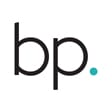7(a) Loan
Definition
The 7(a) Loan Program is the U.S. Small Business Administration’s (SBA) primary and most popular program to assist American small businesses with obtaining financing. This program offers a range of loan options designed to cater to a variety of business needs, from starting up to expanding operations.
Key features of the 7(a) Loan Program include:
- Purpose: 7(a) loans can be used for a wide array of business-related purposes, including working capital, refinancing debt, purchasing equipment and machinery, buying real estate, and even acquiring an existing business.
- Loan Guarantee: The SBA doesn’t directly lend money to businesses under this program. Instead, the SBA provides a guarantee to partner banks and lenders, promising to cover a portion of the loan amount if the borrower defaults. This guarantee reduces the risk for lenders, encouraging them to offer loans to small businesses that might otherwise be considered too risky.
- Loan Amounts: While the exact loan amounts can vary, the maximum loan amount under the 7(a) program is $5 million.
- Terms and Rates: The interest rates and repayment terms are negotiated between the borrower and the lender but are subject to SBA maximums, which are based on the prime rate, the size of the loan, and the maturity of the loan.
- Eligibility: To qualify for a 7(a) loan, businesses must operate for profit, do business in the U.S., have reasonable equity, and demonstrate a need for the loan. They also must meet size standards set by the SBA and show they have tried to use other financial resources, including personal assets, before applying for the loan.
- Collateral: While the SBA won’t decline a loan solely due to lack of collateral, borrowers are expected to pledge available collateral. For larger loan amounts, the lender and SBA usually require the borrower to secure the loan with available assets.
In summary, the 7(a) Loan Program is a cornerstone of the SBA’s efforts to empower small businesses. By guaranteeing loans, the SBA makes it easier for small businesses to secure financing, enabling them to grow, create jobs, and contribute to the economy.
Frequently Asked Questions
- What is the typical down payment for an SBA loan, and what are its terms?
The down payment for an SBA loan varies based on the loan program and the specific circumstances of the borrower. Generally, down payments can range from 10% to 20% of the total loan amount. For example, SBA 7(a) loans often require a down payment of 10-20%, but this can vary depending on the lender and the borrower’s financial situation.
The terms of an SBA loan also vary. For 7(a) loans, the terms can range from 7 to 25 years, depending on the use of funds: working capital loans typically have shorter terms, while loans for real estate may have longer terms. Interest rates are usually variable and tied to the prime rate, but they are subject to a cap set by the SBA. It’s important to note that terms and down payment requirements can vary significantly by lender, so it’s advisable to shop around and discuss options with several SBA-approved lenders.
- What are the key differences between the 7(a) and 504 loan programs?
The 7(a) and 504 loan programs, both offered by the Small Business Administration (SBA), serve different business needs. The 7(a) loan is more versatile and can be used for a variety of purposes including working capital, refinancing debt, or purchasing equipment. It offers a maximum loan amount of $5 million.
The 504 loan, on the other hand, is specifically for purchasing major fixed assets, such as real estate or heavy equipment. It has a higher potential loan amount, often up to $5.5 million, but requires the assets being financed to be used for operational purposes of the business. Another key difference is the structure: 504 loans involve a partnership between a Certified Development Company and a bank, with each covering a portion of the loan.
- What are the basic requirements to qualify for a 7(a) loan?
The basic eligibility criteria for a 7(a) loan include:
- Business Size: The business must meet the SBA’s size standards.
- Financial Standing: Applicants must have a reasonable invested equity and demonstrate a need for the loan.
- Operational Status: The business must be officially registered and operational in the U.S.
- Repayment Ability: There must be proof of the ability to repay the loan from business earnings.
- Good Character: Owners must have a clean criminal record and a history of fulfilling financial obligations (good personal credit).
- Purpose: The loan must be used for a sound business purpose.
- Are new businesses eligible for the 7(a) loan program?
Yes, new businesses can apply for a 7(a) loan. While the SBA doesn’t set a minimum time for a business to be operational, lenders typically prefer businesses with a demonstrated track record. New businesses may need to provide thorough financial projections, a solid business plan, and proof of industry experience to compensate for the lack of operational history. The strength of the business plan and the owner’s creditworthiness are key factors in approval.
- Where can businesses obtain a 7(a) loan?
Businesses can obtain a 7(a) loan from a variety of financial institutions that participate in the SBA program. This includes traditional banks, credit unions, and specialized SBA lenders. It’s important to ensure that the lender is SBA-approved to offer 7(a) loans.
A preferred lender is a status granted by the SBA to high-performing lenders based on their record and proficiency in processing SBA loans. Preferred lenders have the authority to approve SBA loans autonomously, which can lead to a faster and more streamlined loan approval process. Working with a preferred lender can be advantageous for businesses seeking an expedited loan process, as these lenders have demonstrated a thorough understanding of SBA loan policies and procedures. To find a preferred lender, businesses can consult the SBA’s Lender Match tool or directly contact local banks and financial institutions that offer SBA loans.
Related Terms
Also see: Debt Financing

